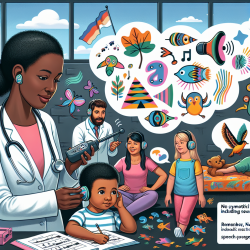Introduction
The Republic of the Marshall Islands (RMI) has been grappling with high rates of childhood obesity, prompting the development of the RMI Guidelines for Healthy Living. These guidelines provide a framework for promoting healthier lifestyles among children. A recent study titled "Prevalence and socio-demographic distributions of meeting RMI Guidelines for Healthy Living among elementary school children in Majuro, Republic of Marshall Islands: a cross-sectional population-based survey" offers valuable insights for practitioners aiming to improve their skills and interventions.
Key Findings of the Study
The study examined the prevalence of children meeting the RMI Healthy Living Guidelines across various socio-demographic groups. Key findings include:
- 90% of children met physical activity guidelines, but only 29% met screen time guidelines.
- Sleep duration was adequate for only 13% of the children, highlighting a significant area for improvement.
- Younger children and boys were more likely to meet physical activity guidelines compared to older children and girls.
- Children in public schools were more likely to meet physical activity and sleep consistency guidelines compared to those in private schools.
Implications for Practitioners
Practitioners can leverage these findings to enhance their interventions and support for children in the RMI. Here are some actionable strategies:
- Promote Physical Activity: Encourage active play and structured physical education programs, especially for girls and older children who are less likely to meet activity guidelines.
- Reduce Screen Time: Educate parents and children on the importance of limiting screen time, particularly before bedtime, to improve sleep quality.
- Enhance Sleep Hygiene: Develop programs that promote consistent sleep routines and educate families about the impact of electronic devices on sleep.
- Focus on Nutrition: Encourage the consumption of fruits and vegetables while reducing the intake of sugar-sweetened beverages and highly processed foods.
Encouraging Further Research
The study underscores the need for ongoing research and monitoring to track progress and refine interventions. Practitioners are encouraged to conduct further research to explore the barriers to meeting these guidelines and develop culturally tailored interventions that address the unique challenges faced by children in the RMI.
Conclusion
By implementing the findings from this study, practitioners can play a pivotal role in promoting healthier lifestyles among children in the RMI. This not only addresses the immediate health concerns but also contributes to the long-term goal of reducing non-communicable diseases in the region.
To read the original research paper, please follow this link: Prevalence and socio-demographic distributions of meeting RMI Guidelines for Healthy Living among elementary school children in Majuro, Republic of Marshall Islands: a cross-sectional population-based survey.










